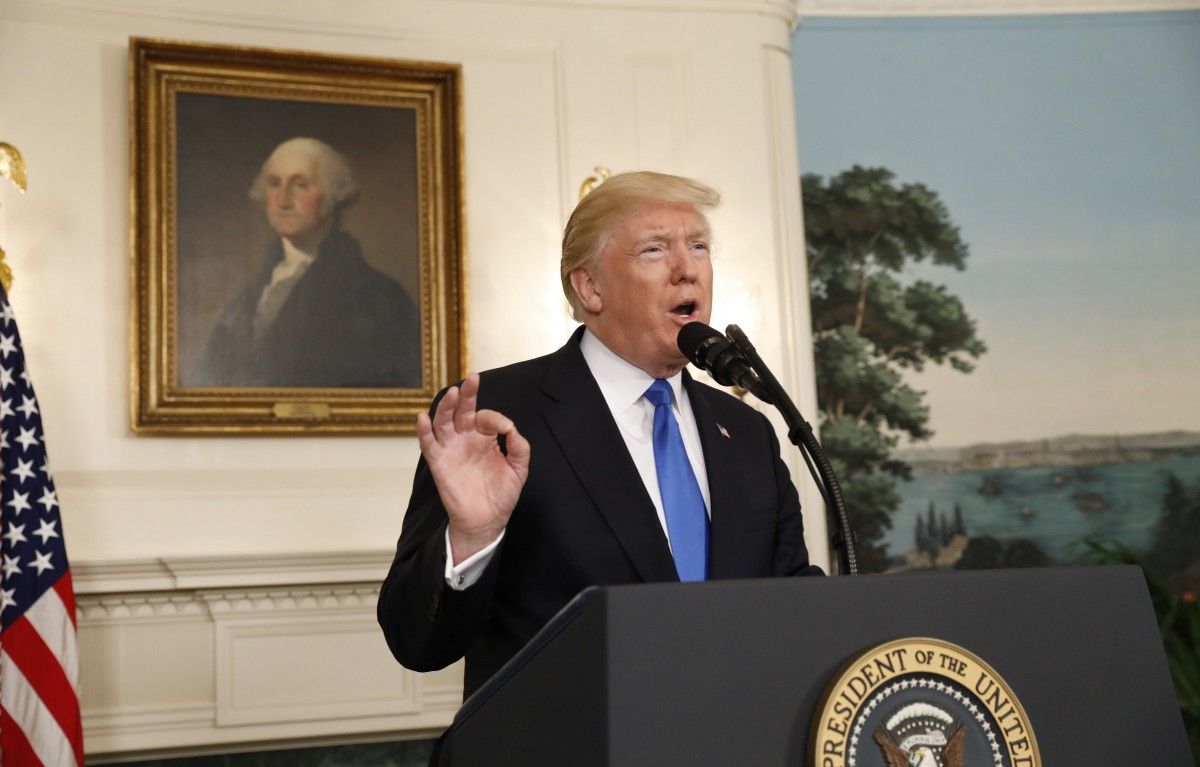
Economy in 2017: TOP 10 game changers
The year of 2017 was filled with surprises and unrest in the global economy. It will be remembered for the escalation of many threats that we can encounter in 2018. This is the first year in office of a status-quo breaker Donald Trump, the year of an active phase of Brexit negotiations as EU remains full of contradictions and unresolved issues, the year of rising prices for oil and raw materials, and the year of striking innovation breakthroughs and stunning human greed that has affected the inflation of a crypto-currency bubble. In the era of globalization, large-scale events, one way or another, affect all corners of the planet. Ukraine was not an exception and will not be an exception in the future. UNIAN recalled the key moments of the outgoing year in global economic life and made an attempt to take a sneak peek into 2018.
Trumponomics
The most notable figure of 2017 in the global arena was U.S. President Donald Trump. Having assumed office in January 2017, he hastened to implement his pre-election slogan, that is “Make America Great Again!” According to plan of a 71-year-old Trump, the return to greatness was through the withdrawal of the world’s largest economy from the Trans-Pacific Partnership treaty and Paris climate agreement designed to prevent an environmental disaster on our planet, recognizing Jerusalem as the capital of Israel, thus infuriating the entire Muslim world, as well as challenging the World Trade Organization, thus threatening the universal rules of global trade.
Toward the end of the year, Trump with the help of U.S. lawmakers pushed through a tax reform, the most radical in decades. Critics blamed the president, who prior to the election specialized in real estate transactions and refused to release his tax return, in intending to lower taxes for the rich. Meanwhile, his supporters announced the imminent acceleration of the U.S. economy from the current 2-3% to 4-6%. For Ukraine and other emerging markets, radical tax cuts in the U.S. means an escalation of global competition for investment attractiveness.
Prices hikes for "black gold"
A memorable trend of the outgoing year was a significant increase in oil prices. In December 2017, the price of "black gold" exceeded the mark of $65 per barrel. Traders say that the latest price hike was caused by suspended operations of Forties, the UK's largest oil pipeline, whose oil is used in Brent and directly affects the cost. However, the December accident did not become the main reason for price growth. Prices continued to rise throughout the year. Among other reasons was a slowdown in the U.S. oil extraction rate and the prolongation for 2018 of a deal on oil output cut signed off by OPEC + Russia.
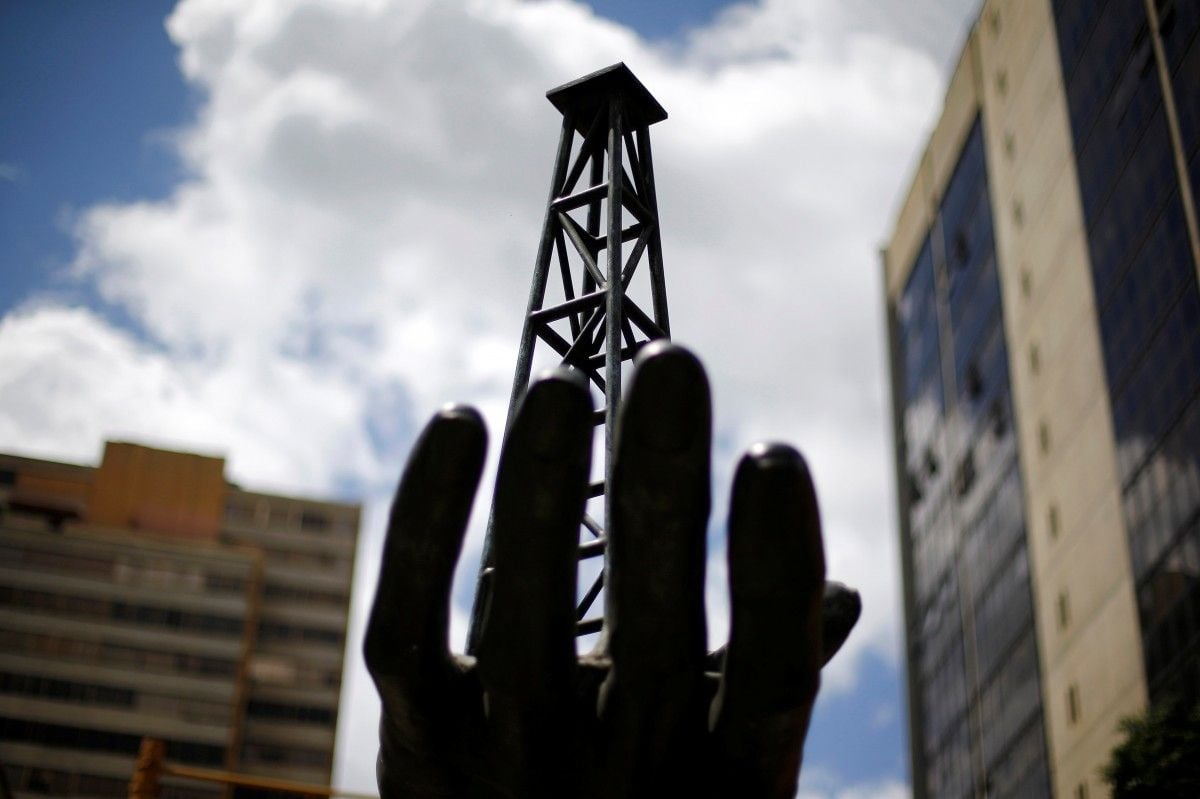
A higher cost of energy inevitably raises the price of production and transportation of goods. Experts warn that the continued rise in petrol prices will stimulate a reduction in consumers' spending on non-essential goods, which will negatively affect the volumes of global trade. The increase in fuel prices worldwide has already led to the fact that since the summer, the price of A-95 petrol in Ukraine has risen from UAH 24.5 to over UAH 30 per liter. We are soon to face the need to increase tariffs for natural gas and central heating. There is no doubt that this trend along the chain will lead to higher inflation. And this can once again make unrealizable the government's dream to keep annual inflation within single digits. In the meantime, our country has the worst inflation rate among European and CIS countries.
Racing on stock markets
Investment bankers will undoubtedly remember this year as a good one. In the last December days of the year they became much richer than on January 1, 2017. Excess liquidity led to the active growth of the world's major stock indices. Despite political instability in Europe, EuroStoxx, which reflects the assessment of financial markets of the 50 largest European companies, grew by 15%.
NYSE Composite index rose 16% in the outgoing year, while the growth of the leading index at London-based FTSE 100 was at 6%. The main index of Frankfurt’s DAX in 2017 was up 14%.
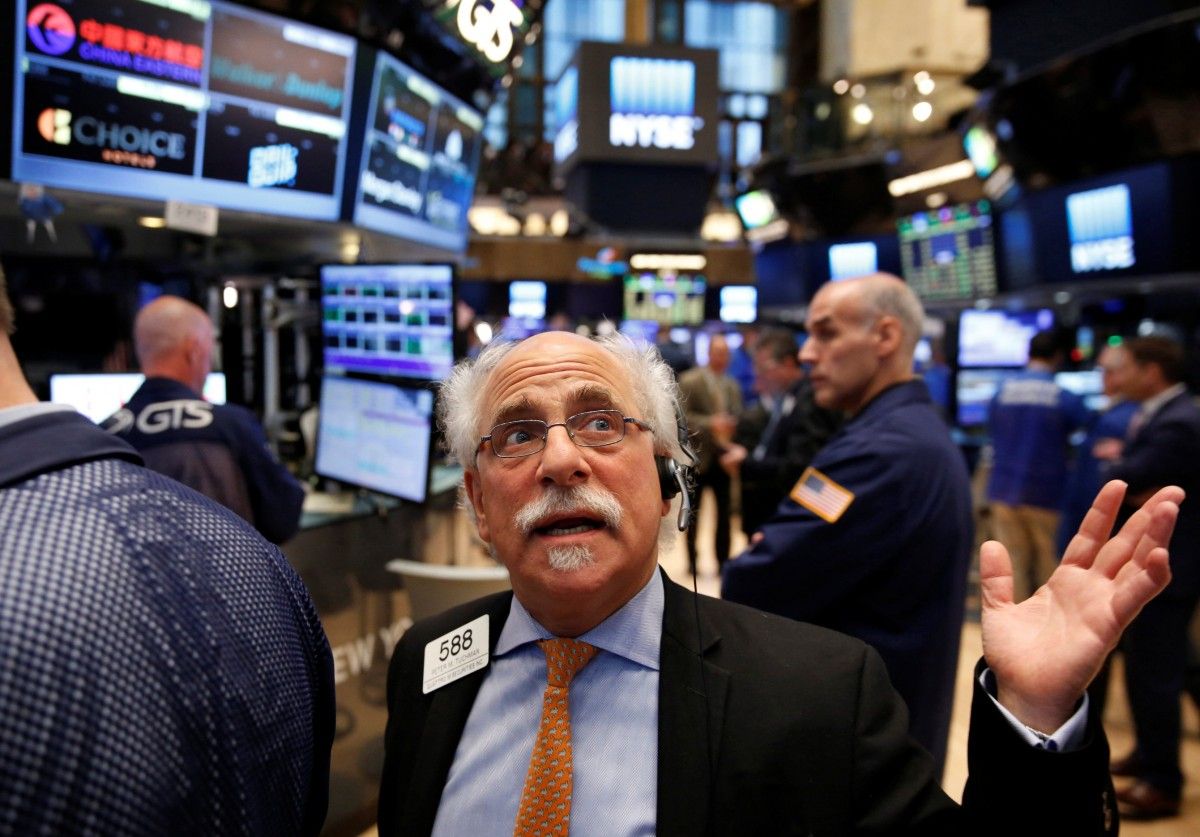
Thus, growth comes to places where the investors are protected by legal instruments, which is still a dream for Ukraine. Meanwhile, China’s purchase of the Ukrainian Bank for Reconstruction and Development and the report on the upcoming opening of IKEA’s first ever store in Kyiv sent some positive signals to the market.
Rise of commodity markets
The autumn of 2017 was a season of rising prices for basic industrial metals, setting a record for a number of rare metals. The prices of iron ore, which together with ferrous metals are an important part of Ukrainian exports, rose by one third within a year. Market analysts explain the price hike with the active growth of global economy and real estate market as well as the restoration of the automotive industry in the U.S. and Europe. Regarding a number of metals, growth is due to expectations of an output cut in China within the framework of its efforts to tackle environmental pollution and amid the ongoing trade wars of producer countries.
The prices of agricultural goods in some fields, for example, for beef and pork, also grew by leaps and bounds. However, wheat and maize, both being the main hope of Ukrainian agrarian exports, have somewhat fallen as a result of good harvests reported across the world.
China’s economic growth
World’s second largest economy in the outgoing year never slowed down. China's gross domestic product will exceed analysts’ forecasts by year-end, increasing to almost 7%.
The Congress of the ruling Communist Party of China at the end of the year confirmed the policy of weakening state control over the economy, urging the authorities to "awaken and protect the entrepreneurial spirit."
In this regard, Secretary General of the Communist Party of China, leader of the People's Republic of China Xi Jinping said that the country has moved from "high growth rates to high-quality development."
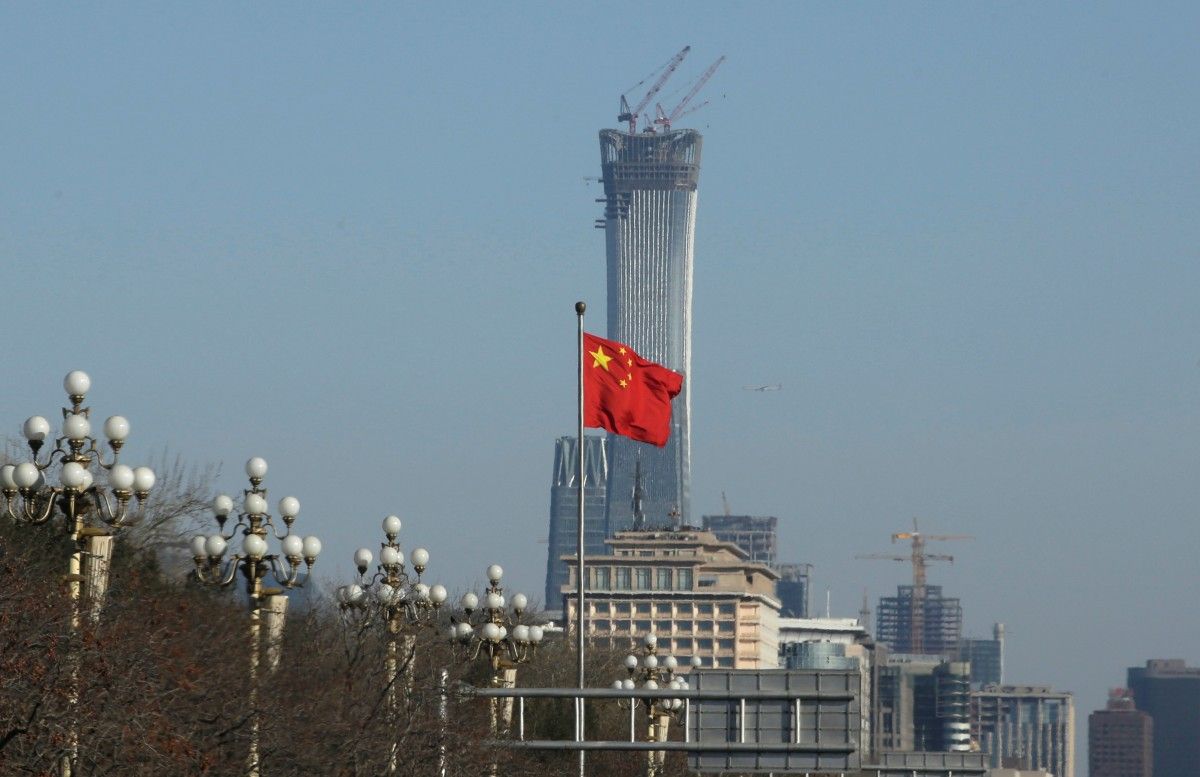
A number of experts doubt that China will be able to make a rapid transition from an economy dominated by labor-intensive industrial production and exports and infrastructure investments to that driven by domestic demand for services.
And although China's economic transformation is far from completion, the progress made by the Celestial Empire is impressive. The country’s geopolitical and economic weight in the world arena continues to grow. China is among Ukraine’s seven largest trade partners. New initiatives suggest the prospects of launching a free trade zone in the near future. Negotiations are also actively conducted on the possibilities of the transit of goods via Ukraine within the framework of the new Chinese-initiated Silk Road.
Turbulent Europe
The European continent this year experienced a period of turbulence - a change of elites and an outburst of populism. Brexit talks, elections in Germany (Europe’s largest economy), France (second or third in terms of its importance in te EU), Catalan separatism tearing Spain apart, and populism in Central Europe - all this will entail certain consequences for the European economy.
However, despite such a whirlpool of events, the economic recovery of the European Union was much stronger than expected. The euro area recorded a real GDP growth of about 2.3%.
And Ukraine should make use of this growth on the largest neighboring market against the background of a full-fledged DCFTA introduced in 2017. Active reform of the Ukrainian economy and judiciary, combating corruption and launching large-scale infrastructure projects will open the door for European investment. There is no doubt about that.
Forex swings
The world foreign currency market in 2017 saw a period of hopes and fears. The main threats have been overcome: China managed to dispel fears about the weakening of economic growth rates, a single Europe managed not to plunge into chaos and not lose Greece or, which would be far more dangerous, France – that’s if the EU and euro destroyer Marine le Pen had won the election. The apocalypse that never came led to the strengthening of the euro and yuan to the dollar.
A "green buck" lost its positions relative to a number of other world currencies, including the Japanese yen, the Mexican peso, and the Swedish kroon. Even the British pound, which fell after the referendum on Brexit, has regained its strength in recent months. The decline in the dollar has become a trend for the first time in recent years. This provided substantial support to the emerging economies.
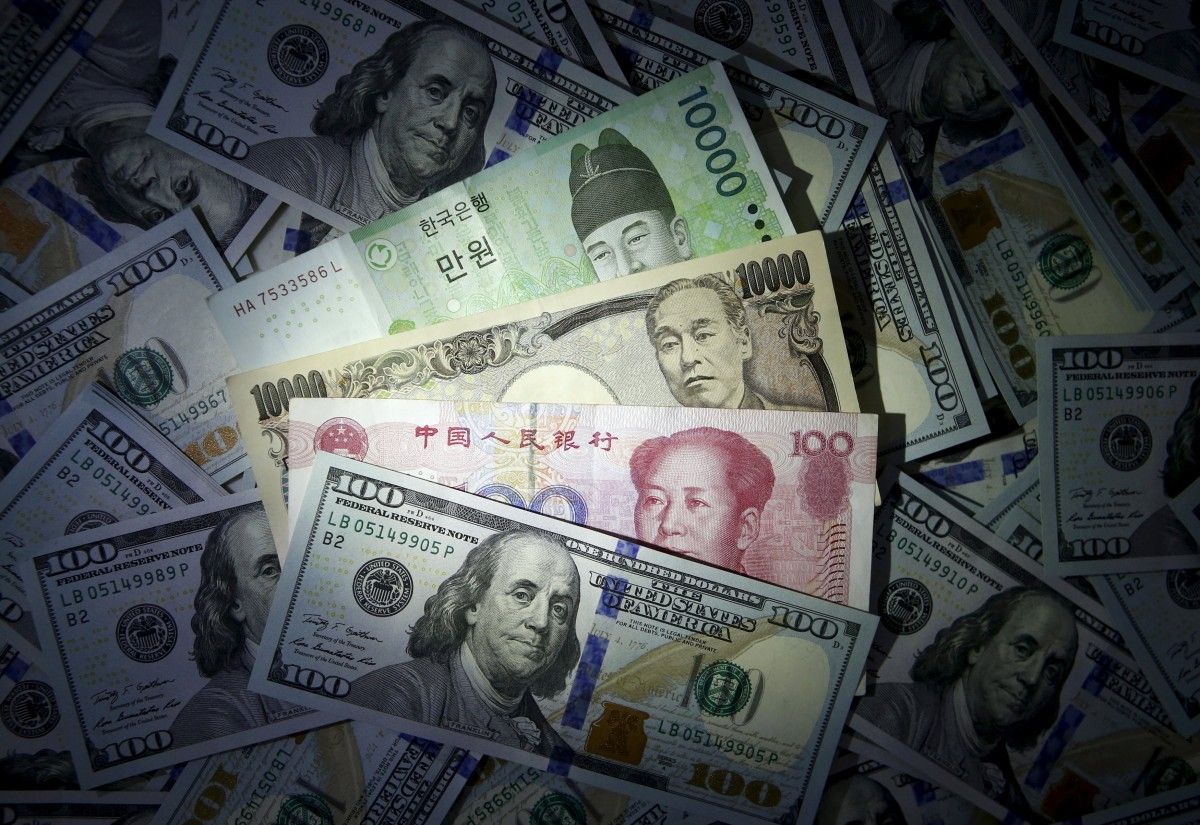
The Ukrainian hryvnia was in tune with global trends and fell 4.7%, for internal reasons, against the dollar on the interbank market. In the second half of December, the exchange rate was more than UAH 28 per dollar. However, experts predict that next year the rate will strengthen somewhat against the background of a surge in exports.
Technological progress
New technologies in the past year were changing our world as we watched. The pioneer of space exploration and transition to electric traction, a U.S. businessman Elon Mask in November presented a brand new electric truck TeslaSemi, capable of driving 800 km without recharging. Meanwhile, Mask’s SpaceX this year has successfully carried out more than a dozen space launches, which exceeds the achievements of any space power.
Following the latest trends, automotive giants across the world made a firm bet on the development of cars on electric traction, which are expected to make people forget about internal combustion engines in the next ten to fifteen years. For example, the Japanese Toyota by 2030 plans to sell more than 5 million electrified cars annually, including 1 million cars with zero emissions. In turn, Germany’s Volkswagen seeks to achieve the same goal 5 years earlier.
The outgoing year brought many other amazing discoveries and achievements, including in the medical field and energy conservation and transformation technology. All this will inevitably improve the quality of our lives in the near future.
Growing uncertainty
Despite the fact that in the outgoing year global economy showed good growth results at about 3.5%, many experts focus on significant risks threatening to repeat the 2008 crisis.
In addition to higher inflation, the stability of the global economic recovery may be undermined by the weakening of consumption as a result of increasing public debt, as well as increased protectionism (recall the initiatives by Donald Trump), which will damage global trade and contribute to the reduction of investment flows in the short term, thus creating risks to productivity growth. Let's not forget about the risks posed by populism - both rightist and leftist - which, as we saw in 2017, can infect a significant part of the population in any relatively prosperous country.
Cryptocurrency fever
The amusing trend of the outgoing year was the rise of the popularity of mankind’s new "toy" - cryptocurrencies, primarily bitcoin. Throughout the year, its rate jumped by a fantastic 2,000% - up to $20,000 in early December. Like any other bubble, within a week it collapsed by 24% - down to about $12,000, but then regained position - up to $15,000.
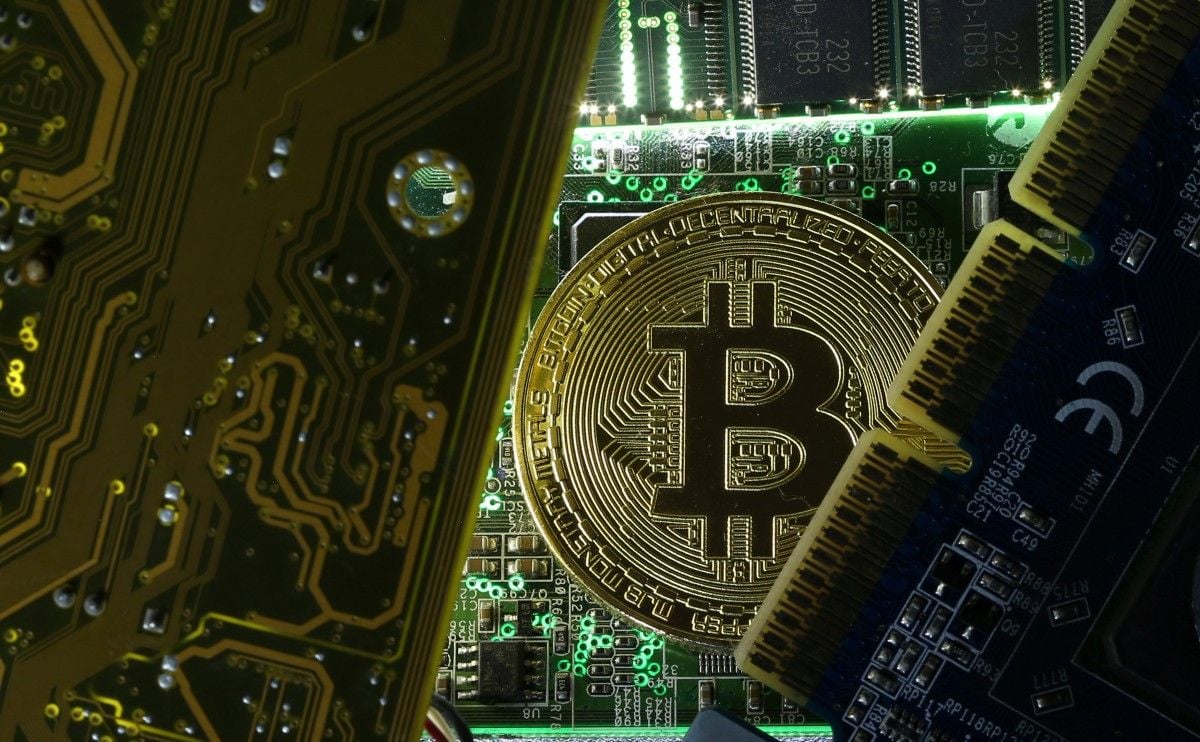
An example with bitcoin is a graphic illustration of the idea that man is driven by greed and fear. But no matter how we relate to the new trends and the ones that are almost gone, the emergence of new financial instruments requires both public comprehension and state regulation. The thing is that the use of cryptocurrencies in the unsettled field will inevitably lead to an increase in the volume of illegal transactions and cybercrime.
Year of the dog
The coming year will mark 10 years since the beginning of the latest global financial crisis. Global economy has practically overcome its consequences, but it accumulated new problems and sores along the way. The state of the world economic system in 2018 will depend on a number of key factors - political and regional stability, prudence of societies and governments, and adequacy of fiscal and monetary policies. According to the forecasts by the International Monetary Fund, the growth of global GDP in 2018 may be about 4%.
As for Ukraine, according to the forecasts of both the government and the expert community, GDP growth next year will be at 3.0%-3.5%. But we should not forget about the risks our country may face in the coming year. A more significant increase in social standards is a risk for inflation, since it can affect both consumer demand on the part of the population and the cost of goods and services. A significant risk for the national economy remains the uncertainty around continued cooperation with the country’s key creditor, the IMF. And here the authorities should stop playing hide-and-seek and resolutely take on the reform of the economy and a real fight against corruption. These efforts will undoubtedly be supported by the international community, our creditors and investors.
Yelizaveta Korchemakha

